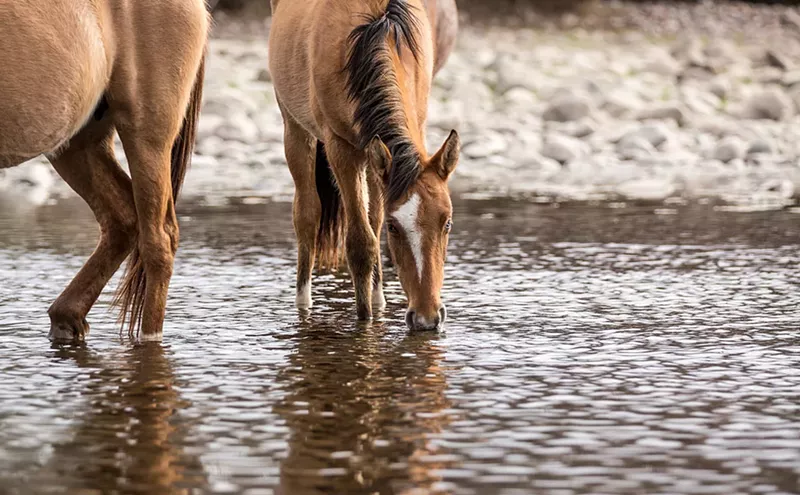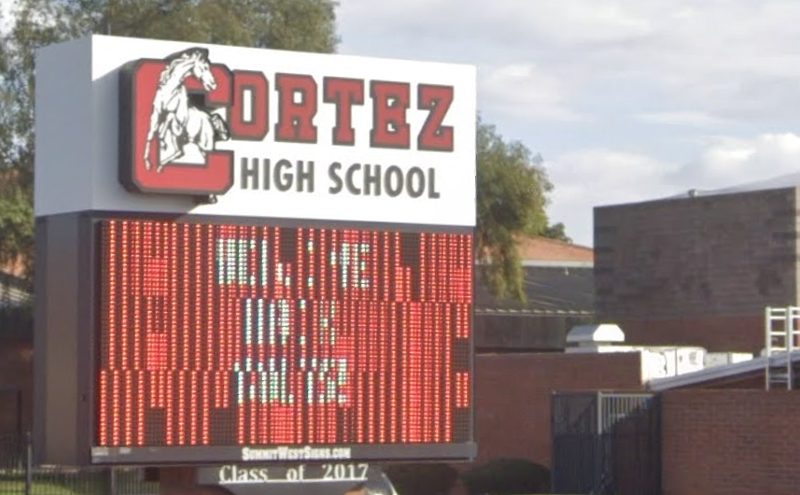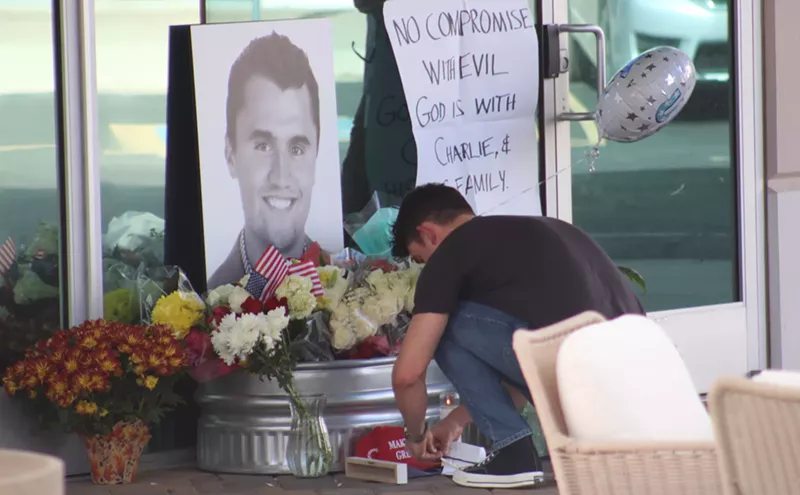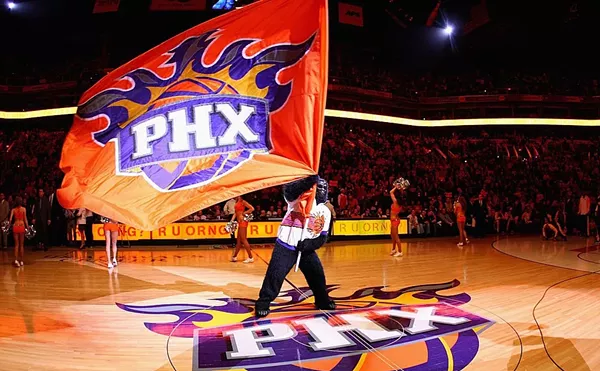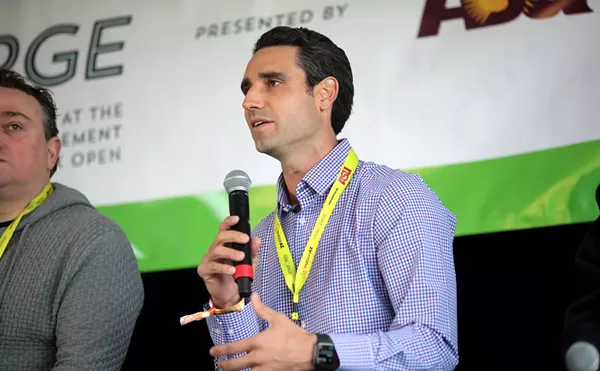There's a complicated legal situation at the Grand Canyon these days because a private concessionaire, Xanterra Parks and Resorts, has accused the National Park Service of mismanagement.
Trying to follow the situation without an economics degree or a legal dictionary is tough so we're going to break it down for you:
The NPS is the federal agency in charge of managing our national and cultural resources, which includes awarding contracts to concessionaires, private companies that run hotels, restaurants, and visitor services on park land. If you've ever stayed at Phantom Ranch or taken a mule ride along the rim, these are examples of concessions, and require special "concession contracts" to operate.
There are four main concessionaires controlling the majority of contracts in the country. One of them is Xanterra--formerly the Fred Harvey Company--and it has had the biggest contract at the Grand Canyon for more than 90 years. Given its history with the park, the company was caught off-guard in August 2013 by an NPS decision to divide its contract and put both parts up for bid.
The park claimed its actions were in line with a 1998 Congressional mandate to make the bidding process more competitive, while in a press release, Xanterra called the move "arbitrary, capricious, and in violation of law." Xanterra sued the park service last October, and then earlier this month, announced it would trademark the names of its iconic concessions.
Both the NPS and Xanterra claim their actions are in the long-term interests of the Grand Canyon and park visitors, but the situation is not so clear cut. The events of the last year, and particularly those of the past few months, are part of a debate over how best to manage the important (and lucrative) relationship between concession companies and our national parks. There are a lot of jobs and a great deal of money getting thrown around in the process, and the outcome looks like it won't be settled anytime soon.
A maxim of our economic system is that competition drives progress. The NPS wants to make the concession-contract bidding process more competitive for the long-term health of the country's national parks. Xanterra isn't arguing that healthy competition is bad, but the company believes the motions taken by the NPS aren't in that spirit, and are instead examples of mismanagement.
Xanterra's previous contract covered operations for 300-plus buildings and services, and the company says it has invested more than $200 million in "lodging, employee housing, roads, trails, utilities, environmental upgrades and other infrastructure" over the years.
Still with me? Because here's where it gets tricky.
The laws for concession contracts include a provision for something called Leasehold Surrender Interest. This essentially means that upon the termination of a contract, a company gets reimbursed by the new contract holder for the money it invested in the park. In the case of the Grand Canyon contract, Xanterra's LSI was worth $157 million.
The NPS knew that would be a hard number to swallow for any prospective bidder and decided to help pay back Xanterra's LSI to make the contracts more attractive. The NPS--which, by the way, has a whole backlog of projects it currently lacks the funding to undertake-- used $25 million from the Grand Canyon's budget, and borrowed another $75 million from other parks, to pay Xanterra.
In 2013, when the NPS split the contract, they divided it into two unequal parts: the larger contract was worth $66 million in annual revenue, and the smaller worth $30 million. They put both contracts up, but no one bid because the stipulations of the contracts were, in the words of Xanterra, "a wholly unfeasible economic proposition." Here's why:
In exchange for the right to run a business on park land, concessionaires are required to pay the park a portion of their profits. This operational cost is called a franchise fee, and in some ways is similar to paying rent. Having borrowed so much money to pay Xanterra's LSI--and being low on cash in general--the NPS increased the franchise free from 3.8% to 14%. To be clear, this means that any company who held this concession contract would give the NPS 14% of its profits, which is about 3 times more than was required in previous contracts. (The park also proposed raising visitor entrance fees.)
The NPS opened the bidding process in 2013, but it had to revise the contract a few times before a New York-based concessions company, Delaware North Companies Parks and Resorts, bid on the smaller part of it. Services previously part of Xanterra's contract include operation of the famous Yavapai Lodge, the Desert View service station, Camper Services (the public laundromat and showers) and the Trailer Village RV campground. According to an NPS press release, Delaware North will pay a minimum franchise fee of 9.4%.
Shortly after the announcement, Xanterra filed a preliminary injunction in a Colorado district court (the company is based in Denver), asking the court to extend its previous contract until further negotiations are made.
The court did not, and Delaware North is currently "operational" and "up and running on the part of the contract they bid on," according to NPS spokeswoman, Kirby Lynn Shedlowski.
Still up for grabs at the end of last year was the larger portion of the contract. For a while it looked like many Xanterra-operated services in those areas would be suspended at the start of 2015 because the old contract was set to expire on December 31, 2014. Thankfully, in a last minute decision, the NPS extended Xanterra's old contract for up to one year.
Xanterra has made it clear that it wants to continue operating at the Grand Canyon, but will not agree to the current terms of the proposed contract for two main reasons. The first is the increased franchise fee, and the second is because of the way NPS split the contracts. Xanterra says that the smaller contract--the one being operated by Delaware North--includes more than its fair share of beds, and leaves the larger contract holder with a housing deficit. Since by law, concessionaires must provide their employees housing, this presents a big, and very costly, problem.
If there's one thing you should remember, it's that the NPS says it is acting to increase competition among concessionaires on the South Rim, and Xanterra says the NPS actually eliminated it by presenting a contract proposal that is not fiscally feasible.
What will happen next is unclear, but we promise to keep you updated.
Got a tip? Send it to: Miriam Wasser.
Follow Valley Fever on Twitter at @ValleyFeverPHX. Follow Miriam Wasser at @MiriamWasser.




